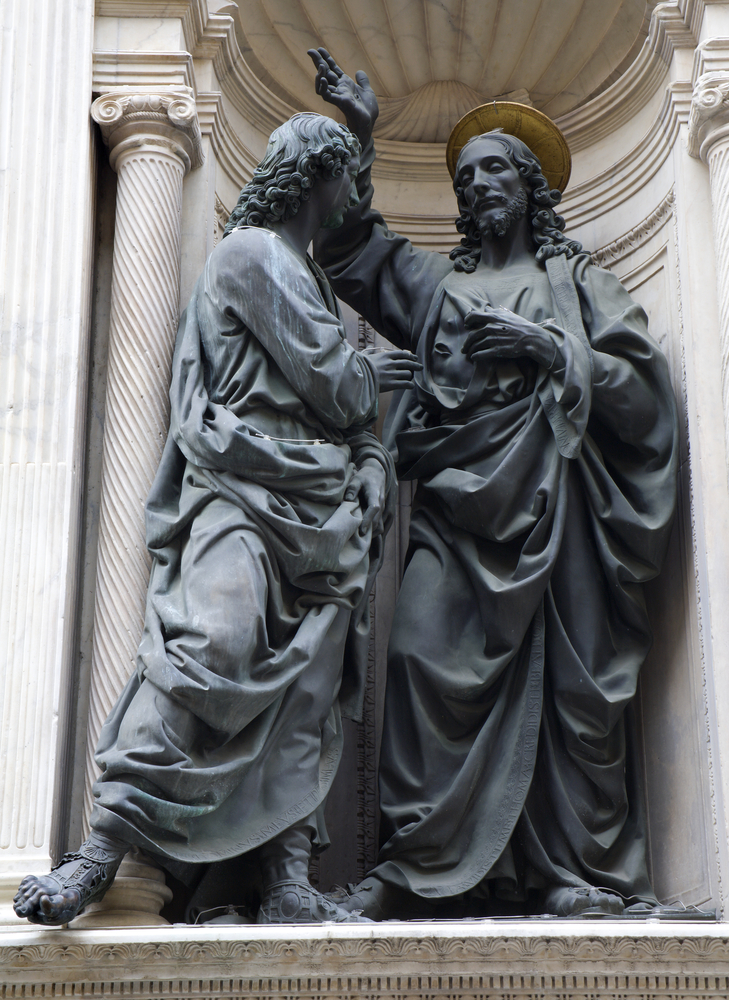Kill the Myths!

The worst thing in Christianity today: the Bible. Why? The stories in the Bible didn’t happen. They are not true. Can we please say this, preferably loudly and frequently?
Bible stories, including all of the Jesus stories, were written in a particular time and context. Feel into it for a moment-you’re living in a time when there are almost no scientific explanations for anything, and even if there were, virtually everyone you know is illiterate. What you all know is that, most of the time, things happen as they have, but every so often, something unexpected happens (good or bad). It looks like some great power acts in the world in both predictable and unpredictable ways, and even many everyday occurrences are great mysteries. You all try to make sense of things as best you can, but so much is out of your control that plenty of events can only be ascribed to God’s blessing or wrath, or miracles by those conjuring up God’s power. This is not stupidity or fraudulent; it’s actually a coherent view of the world as best as you can possibly understand it.
In that time, if you had someone come along who taught great truths, about life and how to live, about connecting with the divine, about the basic nature of reality, this is the context in which he would teach. And this is the context in which you would tell people what you saw and heard, and maybe (if you were one of the literate few) write it down.
In this time, if this person didn’t have stories of miracles, be it a virgin birth or an exorcism, nobody would pay attention. All sorts of people performed miracles. (Frankly, it wasn’t all that hard; just be around when something unexpected happened.) And as stories were told over time, the tales of those miracles would grow in scope and power, both as the general outcome of repeated stories (every play the game “Telephone”?), and as a way of conveying the import of this person in your mysterious, miracle-filled world. Even stories of virgin births weren’t all that uncommon.
And so we get the Bible, from Adam all the way through Jesus and beyond, all written in a world full of mysteries and miracles.
Importantly, within this context, the myths and miracles in the stories are almost secondary. Myths and miracles are everywhere, every day, and so it’s not all that important (except as the necessary badges of approval). The teachings of great truths, about life and how to live, about connecting with the divine, about the basic nature of reality-that’s what’s important in the stories.
That’s all well and good-until the worldview changes. Ours did. The rise of the scientific method has meant that the mysteries of the everyday aren’t so mysterious. More and more, we’re able to explain why things happen as they do, and when something unexpected happens, what changed, and without invoking miracles or divine intervention.
But the Bible and its stories, written down by the time of the scientific revolution, didn’t change. In this new world, where mysteries are either explained or not-yet explained, what stands out for many people are the myths and the miracles. The stories show God doing amazing things, Jesus bringing God’s power to bear, and believing the truth of those stories has become the litmus test. After all, what else is there?
Well, it’s ridiculous. Jesus wasn’t born of a virgin. He didn’t die and then reanimate three days later. God didn’t cause 10 plagues in Egypt to punish Pharoah, didn’t write ten commandments in stone, didn’t tumble the walls of Jericho on the sound of a horn. How do we know? Because we know a whole helluva lot more about how the world works then they did those thousands of years ago, and we know those things are so incredibly unlikely as to be impossible.
If we would just say that, loudly and frequently, an amazing thing can happen. We can start asking some new questions. Why is it that these stories of God and Jesus have stuck around for so long, while the stories of other miracle workers haven’t? What deep truths do these stories reveal? What practices do they teach, what experiences do they inspire, reveal, or inform, what can they tell me about connecting with the divine and the basic nature of reality? And, what have we learned since then, through the great mystics and teachers the world over, that we can add?
But we can’t really do any of this, not really, if we have half our mind stuck in an outdated world view. Let’s kill the myths, so that they can be reborn anew.
(P.S. Are we so different today? In one sense, yes; we use the scientific method to build our understanding of the universe, and it’s a much more reliable method than the myth-making of the past. One of the lessons of the history of science, though, is that our current picture is always wrong. Heck, most laypeople today still think that an electron in an atom orbits the nucleus, like a planet around the sun (the Bohr model), which we know is absolutely false. So why do we keep teaching the Bohr model, even into high school? Because it teaches us something deeply true about the nature of our universe, even if it isn’t completely true. It’s a beautiful revelation, so long as we don’t tell people to believe it.)
Originally posted at: http://grostic.blogspot.com/2012/03/kill-myths.html
